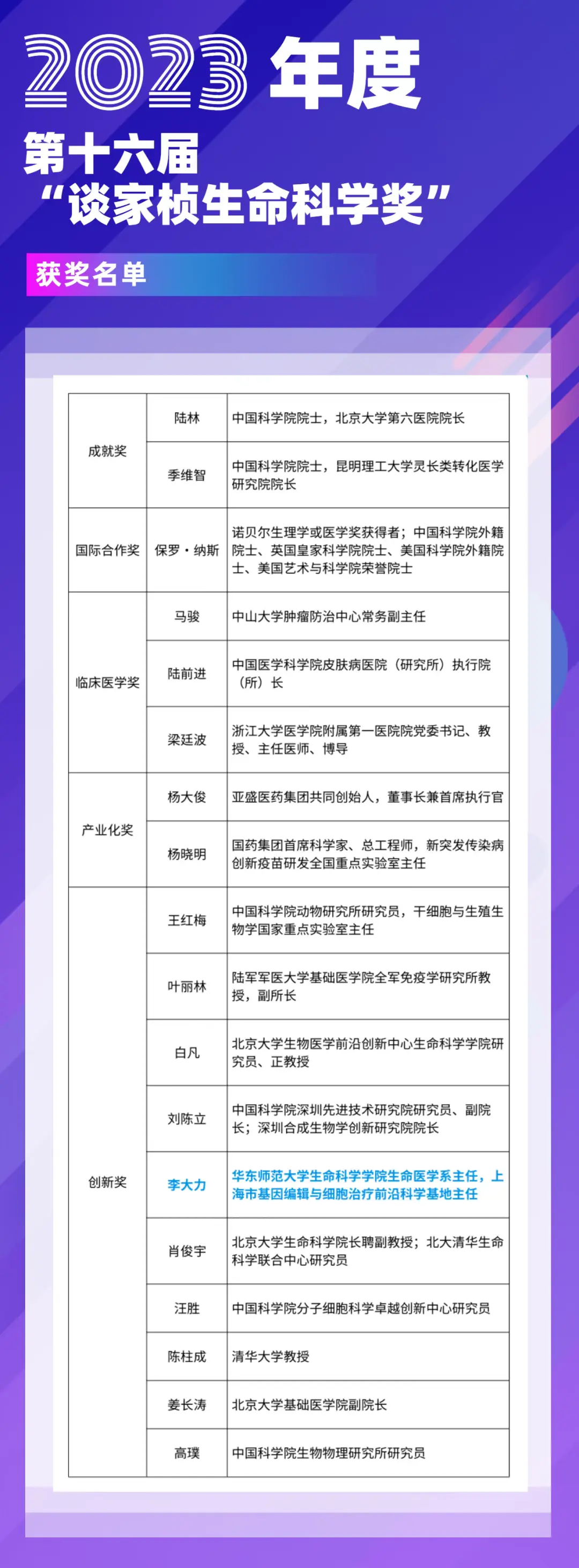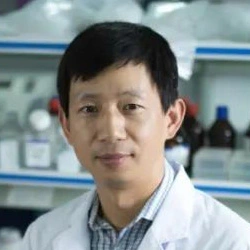Li Dali, a National Foundation for Outstanding Youth Fund recipient, is a researcher at the School of Life Sciences in East China Normal University. He earned his PhD in genetics from Hunan Normal University in 2007 and conducted collaborative research at Texas A&M University during his doctoral studies. After graduation, he joined the School of Life Sciences at East China Normal University as a teacher and researcher. He was promoted to associate professor and researcher in 2009 and 2014, respectively. Currently, he holds several positions including director of the Shanghai Frontier Science Base for Gene Editing and Cell Therapy, deputy director of the Shanghai Key Laboratory of Regulatory Biology, and director of the Minhang Experimental Animal Center of East China Normal University. Li Dali and his team have optimized and innovated gene editing technology, leading to the establishment of a world-class system for constructing gene editing disease models.
Over time, we have optimized and innovated gene editing technology to establish the world's leading system for constructing gene editing disease models. We have also developed several single base editing systems, including hyCBE, ABE9, Td-CGBE/CBE, and A&C-BEmax, which offer higher accuracy and activity. By using single-gene blood genetic diseases like hemophilia and ?-thalassemia as models, we have established a new gene therapy strategy for genetic diseases based on gene editing technology. We conducted the world's first clinical study of gene editing to treat patients with the most severe ?0/?0 thalassemia, curing many patients. Additionally, we were the first in the world to develop non-virally introduced CAR-T cell products with site-specific integration of gene editing, demonstrating higher efficacy and safety than the lentiviral introduction strategy.
The first clinical study of gene editing to treat patients with severe ?0/?0 thalassemia was conducted, resulting in the cure of many patients. This study also developed non-virally introduced CAR-T cell products with site-specific integration of gene editing, which demonstrated higher efficacy and safety than the lentiviral introduction strategy. The author has published over 100 SCI papers, including over 40 as the corresponding author in high-level journals such as Nature, Nature Biotechnology, and Nature Medicine. As the chief scientist and project leader, they oversee key R&D projects for the Ministry of Science and Technology, Shanghai Municipal Education Commission's Gene Editing and Cell Therapy Frontier Science Base, and other major projects. They have received support from the National Natural Science Foundation for Outstanding Youth Fund and key projects. In 2018, they were awarded the Higher Education Institutions of the Ministry of Education Outstanding Achievements in Scientific Research (first prize in natural science, ranked second) and in 2023, they won the first "Outstanding Young Graduate Mentor Award Fund" from the China Teachers and Development Foundation.
In May 2008, the Tan Jiazhen Life Science Award was established with the objective of advancing China's life science research and promoting innovation in the field. The award was proposed by Mr. Tan Jiazhen, a renowned figure in modern genetics in China, and approved by the Ministry of Science and Technology. The award ceremony takes place annually and includes five categories: the Tan Jiazhen Life Science Achievement Award, the Tan Jiazhen Life Science International Cooperation Award, the Tan Jiazhen Clinical Medicine Award, the Tan Jiazhen Life Science Industrialization Award, and the Tan Jiazhen Life Science Innovation Award. The aim of the award is to encourage workers in the life sciences to continue their innovative work and to promote the industrialization of research results.
